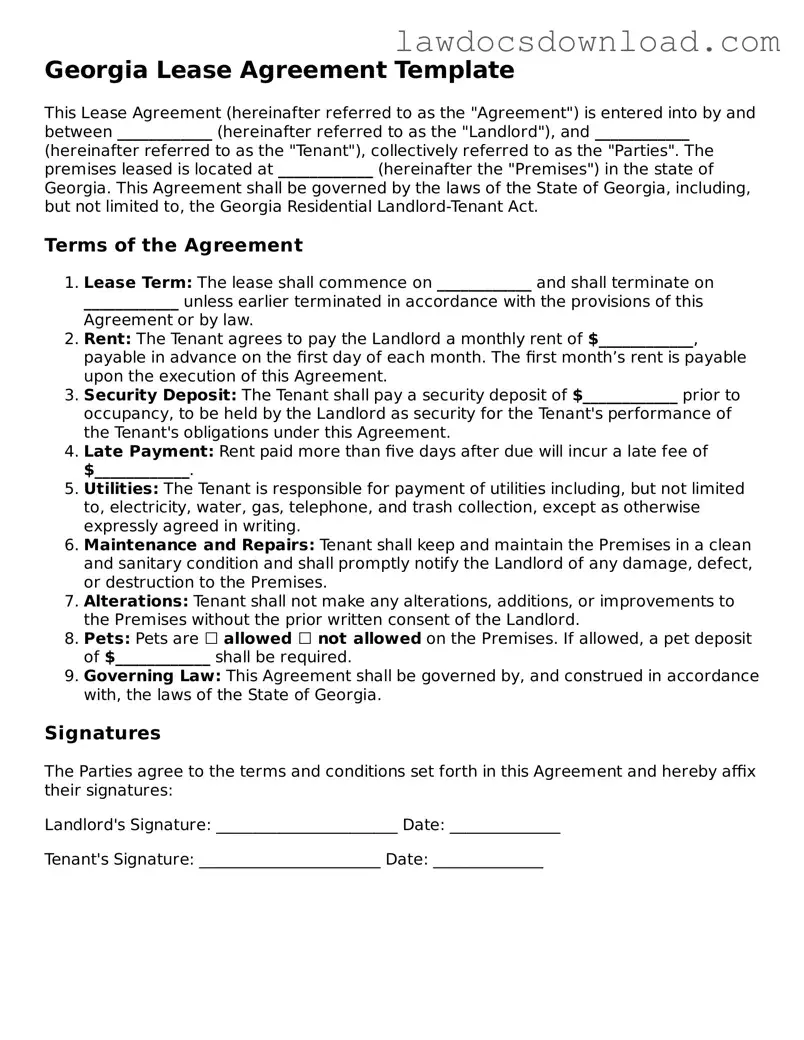Many renters and landlords encounter common pitfalls when navigating the completion of the Georgia Lease Agreement form. These mistakes can lead to misunderstandings, legal issues, and at times, financial loss. Recognizing and avoiding these errors is crucial for a smooth tenancy relationship.
One frequent error is not specifying all involved parties accurately. It is essential to include full names and contact information of everyone who is part of the lease agreement, including all tenants and the landlord or property manager. This detail ensures that responsibilities and rights are clearly assigned.
A second mistake is overlooking the term of lease. The start and end dates of the rental period must be clearly defined. Without these dates, disputes regarding lease termination or renewal can arise, potentially leading to unwanted legal complications.
Many individuals also fail to detail the rent specifics. This includes not just the monthly rent amount but also when it is due, acceptable payment methods, and any penalties for late payment. Clear communication on these points helps avoid financial disputes during the tenancy.
Ignoring the security deposit terms is another common oversight. The lease should spell out the amount, the conditions for its return, and possible deductions at the end of the lease term. This can prevent disagreements about the security deposit when the tenancy concludes.
A significant misstep is not outlining tenant and landlord responsibilities regarding property maintenance and repairs. Knowing who is responsible for what can help prevent minor issues from escalating into major problems, ensuring the property is well-maintained and habitable.
Some people omit rules and regulations that tenants must follow, such as policies on pets, noise, and property alterations. These guidelines help maintain a harmonious living environment for all occupants and the surrounding community.
Another mistake is failing to include a clause about lease termination and renewal. This should cover how either party can terminate the lease and under what conditions, as well as how the lease can be renewed. This clarity can prevent misinterpretations and disputes down the line.
Last but not least, neglecting to understand the legal requirements specific to Georgia can result in compliance failures. Both parties should be aware of Georgia's laws regarding rental agreements to ensure the lease is legally binding and protects everyone's interests.
Being diligent in filling out the Georgia Lease Agreement form, paying attention to these common mistakes, can help create a strong foundation for a positive and legally sound landlord-tenant relationship.

